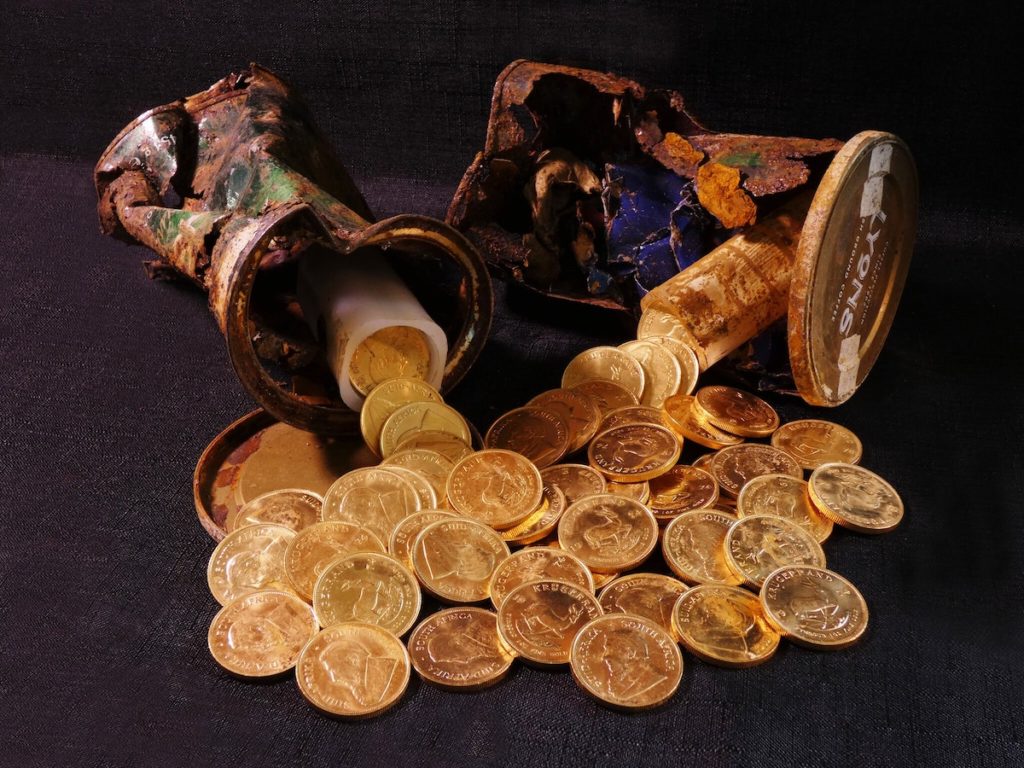
Few things inspire someone to take a longer view on history than the possibility of treasure in their own backyard. With people taking to their gardens under pandemic lockdown came more than 47,000 reported archaeological finds in England and Wales.
Meanwhile, the British government just announced their plans to broaden what counts as “treasure” under law, expanding the definition to include items such as Bronze Age axes, Iron Age caldrons, and medieval weapons and jewelry. Their goal: to keep priceless history out of private collections.
But giving museums dibs on historical artifacts does not seem to diminish their market value or the appeal to landowners and prospectors. The Earth’s surface, now a layered document of not just prehistoric but modern human activity continues to reveal its secrets under the combined exfoliating power of human curiosity and opportunism. “Lockdown gardening” and the varied other forms of digging done by idle hands in 02020 contribute to the Golden Age of archaeology and paleontology we live through as a consequence of rapid global development and our sheer busybodyness:
In 2017, 1,267 pieces went through the process in which a [UK] committee determines whether an item should be considered a treasure, up from 79 pieces in 1997.